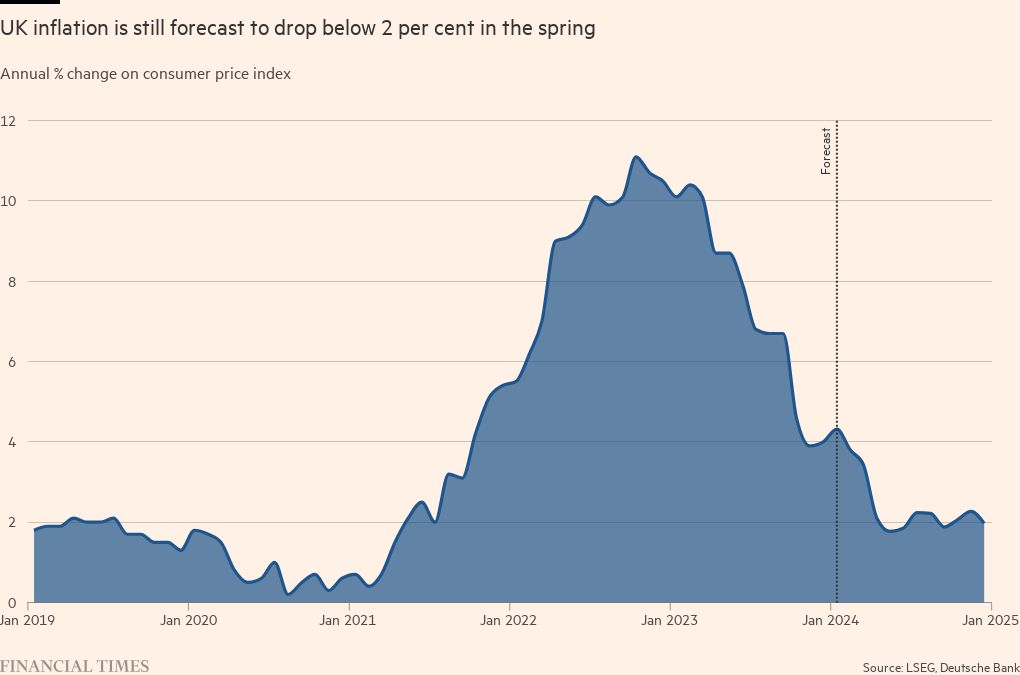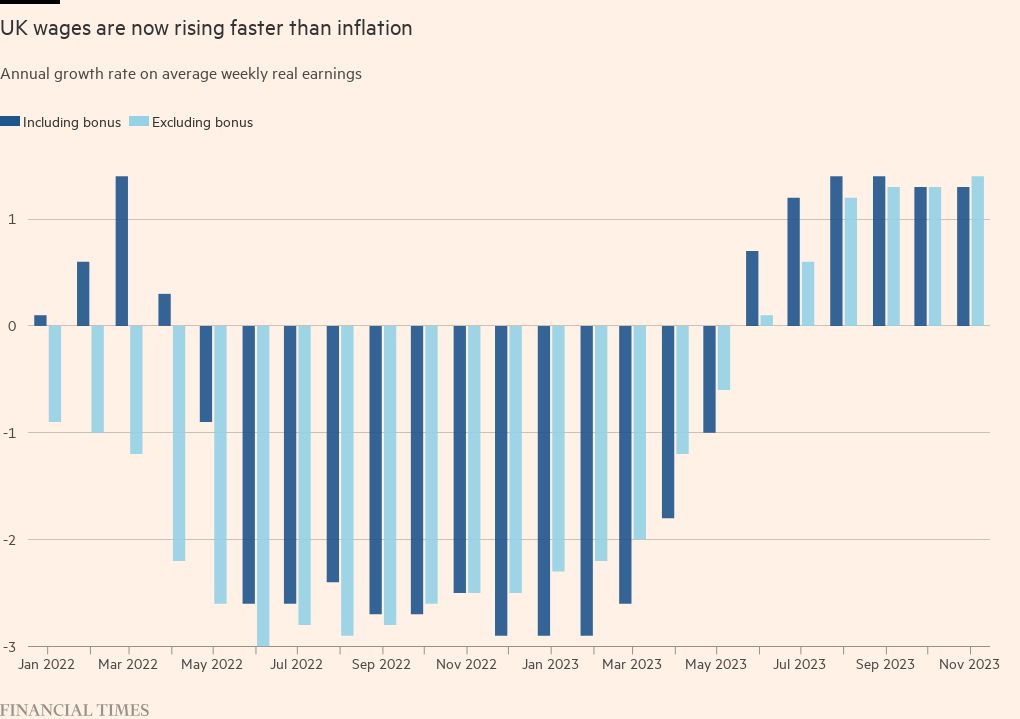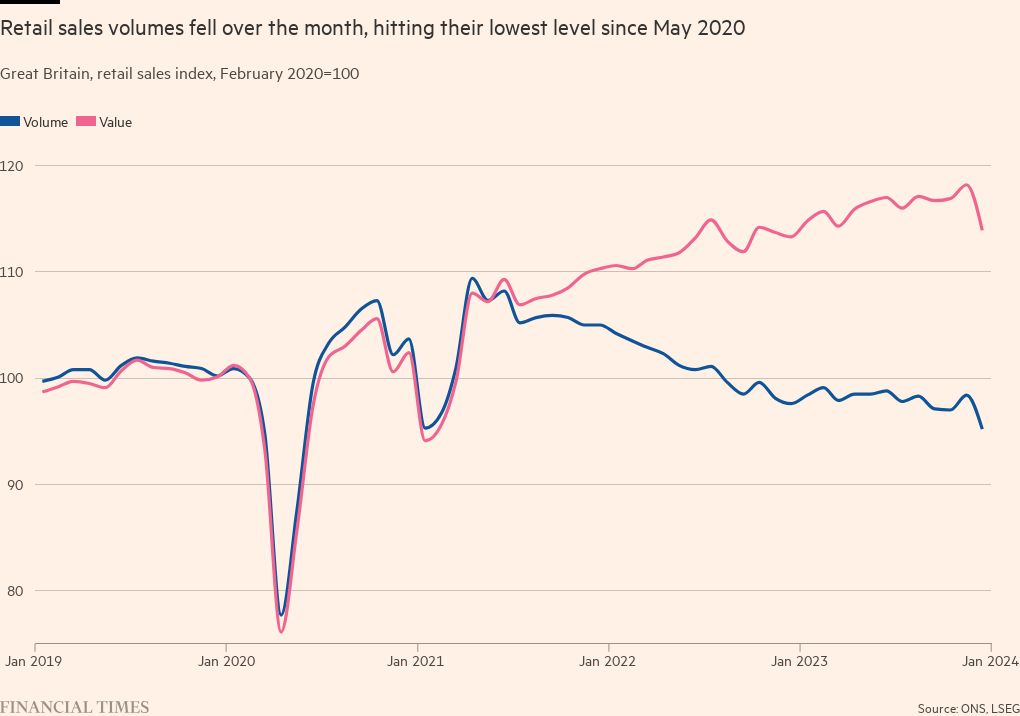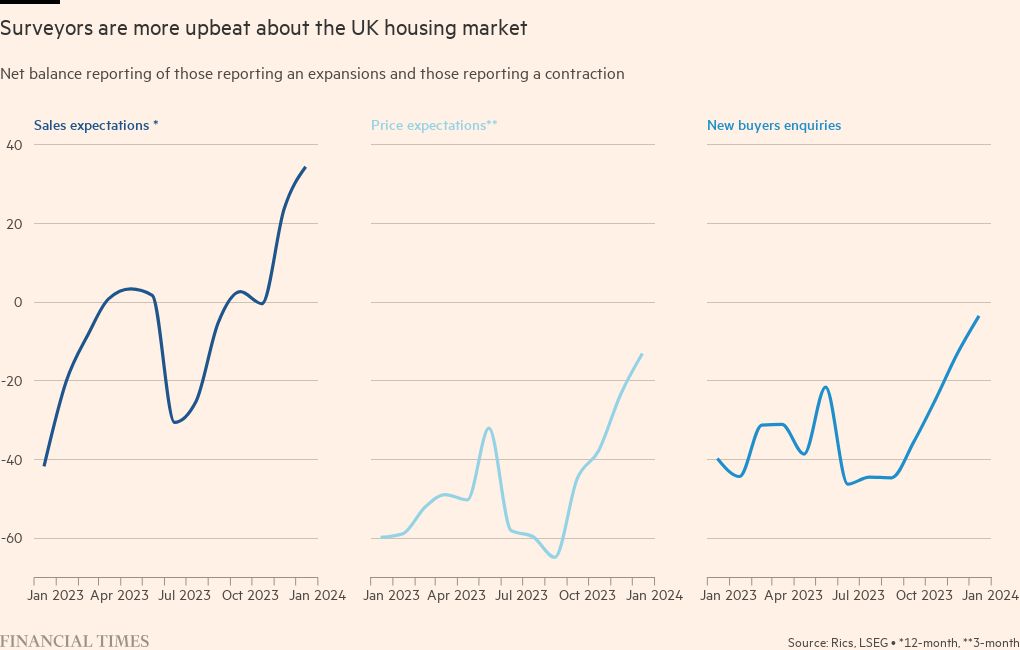Unlock the Editor’s Digest for free
Roula Khalaf, Editor of the FT, selects her favourite stories in this weekly newsletter.
Until this week, the UK economy looked increasingly set for a smooth “soft landing”, with inflation dropping sharply and early signs of growth picking up. But data releases in the past few days have added unexpected turbulence.
Inflation in December was higher than predicted, at 4 per cent, the Office for National Statistics said on Wednesday. On Friday, official data showed retail sales last month fell at the fastest rate since Covid curbs were in place.
Although some analysts still expect a soft landing — where price growth returns to the Bank of England’s 2 per cent target without a sharp recession — the figures have complicated the picture for central bank rate-setters ahead of their next meeting in two weeks.
Neville Hill, co-head of the consultancy Hybrid Economics, said the data meant there was “enough volatility and lagged evidence in the data for Monetary Policy Committee members to stress ‘uncertainty’ and justify keeping rates on hold” at 5.25 per cent.
Wednesday’s data prompted markets to scale back bets on cuts in the BoE’s benchmark rate, which stands at a 15-year high, but the retail sales numbers moved them the other way. Traders now see interest rates ending the year at 4-4.25 per cent, on the back of inflation falling from a 41-year high of 11.1 per cent in October 2022 and expectations of further declines.
Price pressures are easing more quickly than forecast only a few months ago, with expected cuts to the cost of borrowing likely to boost spending and activity in the months ahead, according to analysts.
Paul Dales, economist at the consultancy Capital Economics, said a soft landing was still “the most likely outcome”, adding that this week’s data pointed to “a bit of mild turbulence as the plane comes into land, rather than anything more significant”.
Last week, the ONS said the economy grew 0.3 per cent between October and November. But output marginally contracted in the three months to September, meaning the economy could have entered a technical recession if data released next month shows another drop in output in the final quarter.
On Tuesday, the agency reported that real wages rose in the three months to November, while nominal pay growth slowed. But some economists said continuing problems with its survey meant the true state of the labour market remained uncertain.
Although inflation accelerated to 4 per cent in December from 3.9 per cent in the previous month, driven by higher tobacco and alcohol costs, it was still well below the BoE’s latest forecast.
In November, when price data was available only up to September and showed sticky underlying pressures, the central bank pencilled in price growth of 4.6 per cent and services inflation of 6.9 per cent in December.
Both measures, which are watched closely by policymakers, came in under those estimates last month, having fallen sharply in October and November.
“The big picture is that inflation and wage [growth] are still substantially lower than the BoE was forecasting as recently as November,” said Jack Meaning, economist at Barclays.
With the household energy price cap expected to fall by 10-14 per cent in April thanks to lower wholesale gas prices, most analysts think inflation will drop below 2 per cent by the spring and stay at or close to that level for the rest of the year.
Andrew Goodwin, chief UK economist at consultancy Oxford Economics, said he had become “more upbeat on near-term prospects” because of the improving inflation outlook, which meant businesses had easier access to funding and was already helping households refinancing mortgages.
Pay and inflation “is clearly headed in the right direction as far as the MPC is concerned,” he said, adding that “we should ignore” the 3.2 per cent month-on-month drop in retail sales in December, the biggest since January 2021. The fall partly reflected shoppers taking advantage of Black Friday discounts in November ahead of Christmas.
Better economic prospects will boost Rishi Sunak’s Conservatives ahead of the election expected this year. The prime minister on Friday promised there was “more to come” on pre-election tax cuts, which Tory MPs are calling for as their party lags Labour in opinion polls.
However, in a sign of the difficulty in drawing clear conclusions from all the figures, Hill said they offered “growing evidence that tighter monetary policy — with its long, variable lags — is hitting consumer spending”.
Sandra Horsfield, economist at Investec, warned that with the ONS still not publishing key data on unemployment and inactivity, it was difficult to assess the strength of households’ income and “their ability to shoulder price rises” and broader cost pressures.
As a result, Yael Selfin, chief economist at KPMG UK, said the consultancy expected “the BoE to remain cautious as it interprets the last set of data”.
The property sector, as well as business and consumer sentiment, has improved in recent months following financial market expectations of BoE rate cuts this year.
On Thursday, the Royal Institution of Chartered Surveyors said estate agents expected house sales to expand in 2024 and were more optimistic about prices and demand.
Horsfield said she expected reductions in national insurance, which took effect this month, and possible tax cuts in the government’s March Budget to boost sentiment.
But overall the economy stagnated last year and might even have slipped into a technical recession.
Charlie Huggins, head of equities at the investment broker Wealth Club, said it was not clear if some of the latest data was a “blip or a more worrying sign”.
But he added: “One thing’s for sure — despite optimism around interest rate cuts, the UK economy certainly isn’t out of the woods.”









